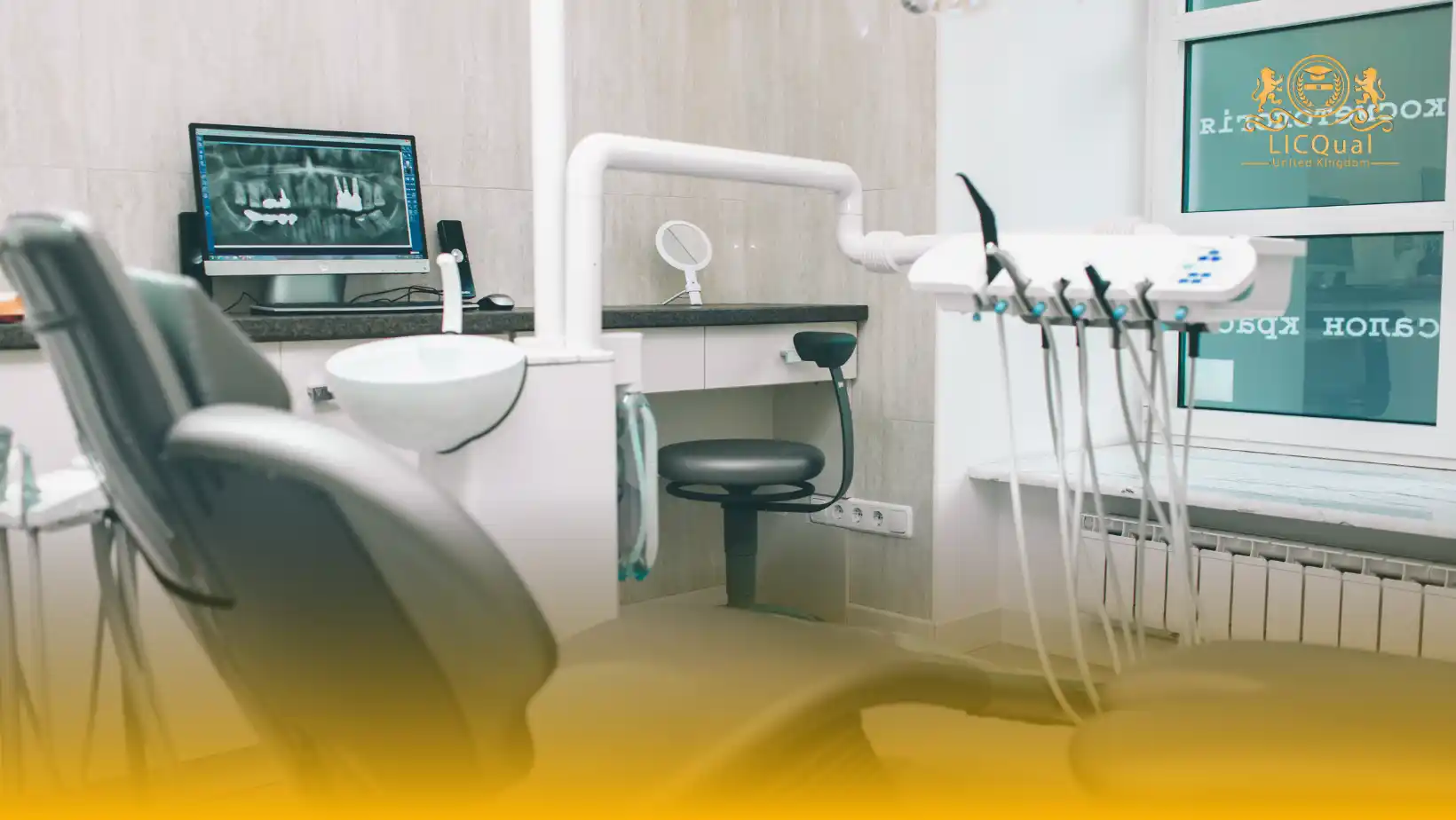The LICQual Level 7 Postgraduate Diploma in Clinical Toxicology (PgD Clinical Toxicology) is a specialized qualification designed for experienced professionals seeking to advance their careers within the fields of toxicology, healthcare, and clinical research. This postgraduate diploma is not intended for fresh entrants; it is specifically tailored for learners who already possess foundational knowledge in life sciences, pharmacy, medicine, or related disciplines and wish to deepen their expertise, expand their professional knowledge, and actively engage in Continuing Professional Development (CPD).
Learners enrolled in this programme will gain advanced knowledge of toxicological principles, including the mechanisms of chemical and biological toxins, pharmacokinetics, risk assessment, and clinical management of toxic exposures. The course also explores contemporary analytical techniques, laboratory practices, and regulatory frameworks, equipping learners with the skills needed to make informed decisions in both clinical and research settings.
LICQual ensures that all centres delivering this Level 7 qualification maintain the highest standards of education. Centres are required to have competent, qualified staff with relevant experience in toxicology and clinical practice, as well as access to all essential learning materials, laboratory facilities, and digital resources. This commitment guarantees that learners receive exceptional guidance, hands-on experience, and the support necessary to achieve their professional objectives.
By undertaking the PgD Clinical Toxicology, learners will enhance their career prospects, gain recognition for their specialized knowledge, and position themselves as experts capable of contributing to clinical safety, research innovation, and evidence-based practice in the field of toxicology. This qualification is ideal for professionals seeking to develop leadership, analytical, and decision-making skills in clinical and laboratory environments.
Course Overview
Qualification Title
LICQual Level 7 Postgraduate Diploma in Clinical Toxicology (PgD Clinical Toxicology)
Total Units
6
Total Credits
120
GLH
600
Qualification #
LICQ2201242
Qualification Specification
To enroll in the LICQual Level 7 Postgraduate Diploma in Clinical Toxicology (PgD Clinical Toxicology), applicants must meet the following criteria:
|
Qualification# |
Unit Title |
Credits |
GLH |
|---|---|---|---|
|
LICQ2201242-1 |
Advanced Principles of Clinical Toxicology |
20 |
100 |
|
LICQ2201242-2 |
Toxicokinetics and Pharmacodynamics |
20 |
100 |
|
LICQ2201242-3 |
Clinical Risk Assessment and Management |
20 |
100 |
|
LICQ2201242-4 |
Analytical Techniques in Toxicology |
20 |
100 |
|
LICQ2201242-5 |
Regulatory Frameworks and Ethical Considerations in Toxicology |
20 |
100 |
|
LICQ2201242-6 |
Research Methodologies and Innovation in Clinical Toxicology |
20 |
100 |
By the end of this course, learners will be able to:
Unit 1: Advanced Principles of Clinical Toxicology
Learners will be able to:
- Analyse and evaluate the fundamental principles of clinical toxicology, including mechanisms of toxicity and dose-response relationships.
- Apply toxicological knowledge to assess the impact of chemical and biological hazards in clinical and research contexts.
- Critically examine real-world case studies to support evidence-based decision-making in toxicology.
Unit 2: Toxicokinetics and Pharmacodynamics
Learners will be able to:
- Interpret the absorption, distribution, metabolism, and excretion of toxic substances in human and experimental systems.
- Apply pharmacokinetic and pharmacodynamic principles to assess the effects of toxic agents.
- Evaluate biomarker data and toxicological models to inform clinical and research decisions.
Unit 3: Clinical Risk Assessment and Management
Learners will be able to:
- Conduct comprehensive risk assessments for chemical and biological exposures in clinical and occupational environments.
- Develop and implement risk management strategies and emergency response plans.
- Critically evaluate exposure data and mitigation measures to ensure patient and workplace safety.
Unit 4: Analytical Techniques in Toxicology
Learners will be able to:
- Demonstrate knowledge of advanced analytical methods, including chromatography, spectroscopy, and mass spectrometry.
- Apply laboratory techniques safely and accurately to generate reliable toxicological data.
- Analyse and interpret experimental results to support clinical and research objectives.
Unit 5: Regulatory Frameworks and Ethical Considerations in Toxicology
Learners will be able to:
- Interpret international regulatory standards and guidelines relevant to clinical toxicology.
- Assess ethical considerations in toxicology research and clinical practice.
- Develop strategies to ensure compliance with legal, regulatory, and ethical requirements.
Unit 6: Research Methodologies and Innovation in Clinical Toxicology
Learners will be able to:
- Design and execute advanced toxicology research projects, including experimental planning and statistical analysis.
- Critically appraise scientific literature and integrate findings into practical applications.
- Demonstrate innovative thinking and problem-solving skills in clinical toxicology research and practice.
The LICQual Level 7 Postgraduate Diploma in Clinical Toxicology (PgD Clinical Toxicology) is designed for pharmacists, healthcare professionals, and researchers who want to specialize in the science of poisons, toxins, and drug safety. This internationally recognized postgraduate diploma in clinical toxicology provides advanced skills, global accreditation, and career‑boosting recognition. Whether you are working in hospitals, poison control centers, or research institutions, this Level 7 pharmacy qualification equips you with the expertise to excel in clinical toxicology practice.
1. Practicing Pharmacists
- Pharmacists aiming to specialize in clinical toxicology practice
- Professionals seeking advanced postgraduate qualifications for career progression
- Those interested in managing drug overdoses and toxic exposures
- Individuals looking for internationally recognized pharmacy diplomas
- Pharmacists wanting to enhance their clinical decision‑making skills
2. Hospital and Clinical Pharmacists
- Pharmacists working in hospitals managing toxicology cases
- Professionals involved in emergency medicine and critical care teams
- Those responsible for prescribing and monitoring antidotes and detox therapies
- Clinicians seeking postgraduate training in clinical toxicology practice
- Hospital pharmacists aiming for global recognition with a Level 7 qualification
3. Poison Control and Emergency Specialists
- Healthcare workers in poison control centers and emergency departments
- Specialists handling acute poisoning and toxic exposure cases
- Professionals seeking postgraduate training in toxicology and emergency response
- Those aiming to strengthen patient safety through toxicology expertise
- Emergency medicine staff requiring advanced clinical toxicology knowledge
4. Public Health and Regulatory Professionals
- Healthcare workers addressing toxicology in public health programs
- Specialists in regulatory affairs and pharmaceutical compliance
- Professionals seeking postgraduate training in toxicology and healthcare integration
- Those aiming to strengthen global health initiatives through toxicology expertise
- Public health officers requiring advanced clinical toxicology knowledge
5. Academic and Research Scholars
- Researchers focusing on toxicology and pharmaceutical sciences
- Academics seeking postgraduate diplomas for teaching and curriculum development
- Scholars aiming to publish in clinical toxicology journals
- Professionals interested in evidence‑based pharmaceutical interventions
- Those pursuing advanced qualifications to support research funding and grants
6. Early‑Career Pharmacists and Graduates
- Recent graduates seeking specialization in clinical toxicology
- Young professionals aiming to boost employability with postgraduate diplomas
- Those wanting to stand out in competitive healthcare job markets
- Graduates interested in advanced pharmacy training aligned with global needs
- Early‑career pharmacists seeking structured career pathways
7. Healthcare Policy Makers and Administrators
- Professionals shaping toxicology and pharmaceutical policies
- Administrators overseeing pharmacy education and healthcare programs
- Leaders aiming to integrate toxicology expertise into healthcare strategies
- Policy makers requiring advanced knowledge of clinical toxicology
- Healthcare managers seeking internationally recognized postgraduate qualifications
To ensure learners achieve the highest standards of education and training, centres delivering the LICQual Level 7 Postgraduate Diploma in Clinical Toxicology must meet strict criteria in staffing, facilities, and resources. These requirements guarantee that learners receive expert guidance, access to essential tools, and the support necessary for successful completion of the programme.
- Qualified and Competent Staff: Centres must employ experienced instructors with relevant qualifications in clinical toxicology, life sciences, pharmacy, or related disciplines. Staff should be capable of delivering complex theoretical knowledge, supervising laboratory practice, and mentoring learners in research and professional development.
- Access to Learning Materials and Resources: Centres must provide comprehensive learning resources, including up-to-date textbooks, academic journals, online databases, laboratory manuals, and digital learning platforms. Learners should have ready access to these materials to support independent study and practical exercises.
- Laboratory and Practical Facilities: Centres offering practical components must have fully equipped laboratories that meet health, safety, and regulatory standards. Learners should be able to safely conduct experiments, analyses, and simulations under expert supervision.
- Assessment and Quality Assurance: Centres must implement robust assessment procedures, ensuring fairness, reliability, and consistency in evaluating learner performance. Quality assurance mechanisms should monitor teaching effectiveness, learner progress, and programme outcomes.
- Learner Support: Centres are expected to provide guidance, academic mentoring, and professional development support to enable learners to achieve the programme’s learning outcomes and maximise their career potential.
By meeting these centre requirements, LICQual ensures that learners of the Level 7 Postgraduate Diploma in Clinical Toxicology receive world-class training, practical experience, and the resources needed to excel in clinical, research, and regulatory toxicology roles.
Assessment and Verification
All units within this qualification are subject to internal assessment by the approved centre and external verification by LICQual. The qualification follows a criterion-referenced assessment approach, ensuring that learners meet all specified learning outcomes.
To achieve a ‘Pass’ in any unit, learners must provide valid, sufficient, and authentic evidence demonstrating their attainment of all learning outcomes and compliance with the prescribed assessment criteria. The Assessor is responsible for evaluating the evidence and determining whether the learner has successfully met the required standards.
Assessors must maintain a clear and comprehensive audit trail, documenting the basis for their assessment decisions to ensure transparency, consistency, and compliance with quality assurance requirements.







